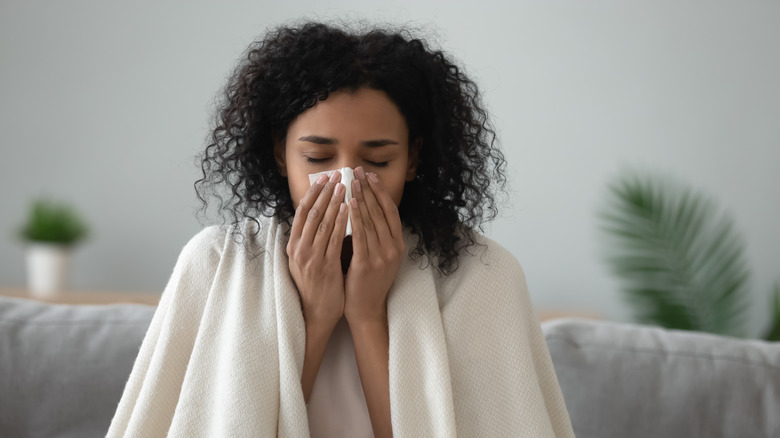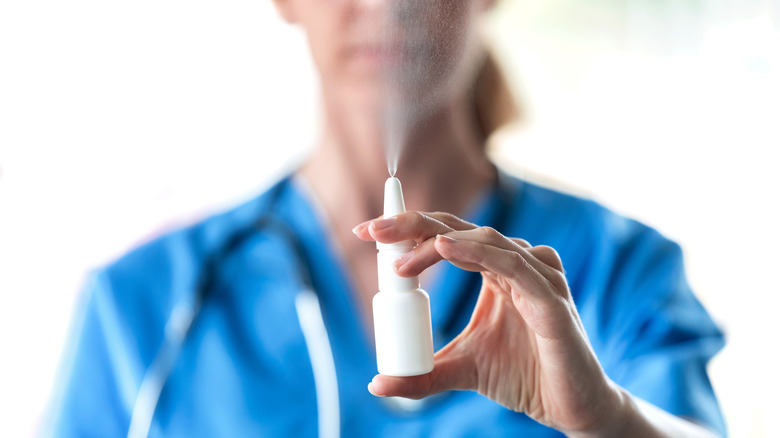Can You Take Allergy Medicine After Getting The COVID Vaccine?
Spring is a beautiful time of the year. The sun is shining, the birds are chirping, and the pollen is raging. That's right. Spring may be a welcome guest after the dark and cold winter months, but that doesn't mean a lot of us aren't thrilled with its arrival. Allergy season is officially underway and you, or likely someone you know, are going about their days with watery eyes and a packet of tissues nearby. This would usually be the time to start taking symptom-relieving allergy medication. Though considering we are still in the middle of an on-going pandemic, and a country-wide vaccination rollout, you might being pausing before taking a pump of that nasal spray to wonder: Is it safe to use an allergy medication after receiving the COVID vaccine?
First, consider what type of allergy medication you are taking. Shirley Fung, M.D., an allergy and immunology specialist at Jefferson Health claims via The Philadelphia Inquirer, "If every springtime you take your Zyrtec and use your nose sprays, absolutely you should continue taking those," she says. Adding, "There's no concern it will interfere with the efficacy of the vaccine."
It is not recommended to take an allergy medication to relieve potential side effect symptoms
You should still be mindful of allergy medications and the vaccine, though. If you're prescribed or taking stronger, immune-suppression medications, like prednisone, then it would be best to talk to your doctor before getting the COVID vaccine, says The Philadelphia Inquirer. In addition, if you are set to receive an allergy medication through injection, the CDC recommends via Allergist that you avoid doing so on the same day as receiving your COVID vaccination and to wait at least 14 days after.
However, if you do not normally take an allergy medication and thought to medicate either before or after getting the COVID vaccine to prevent feeling the symptoms of potential side effects, then you should reconsider. Scott Feldman, M.D., Ph.D., a physician and assistant professor of medicine in the section of allergy and immunology at Penn Medicine says via The Philadelphia Inquirer. "If you're worried, your best strategy is not premedication, but to talk to your doctor so that you can try to alleviate some of that anxiety," he says. "In general, these vaccines have been very safe and we've seen very few true allergic reactions."
To stay on the safe side, if you are unaware of the strength and what type of medication your allergy medication is classified under, then it is always best to contact your doctor for further advice before your vaccination appointment.


